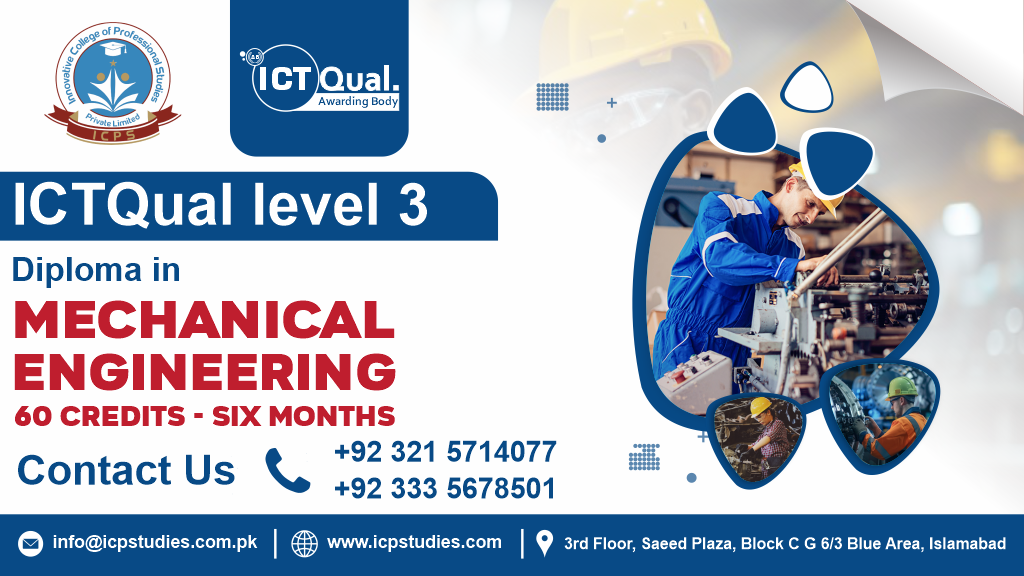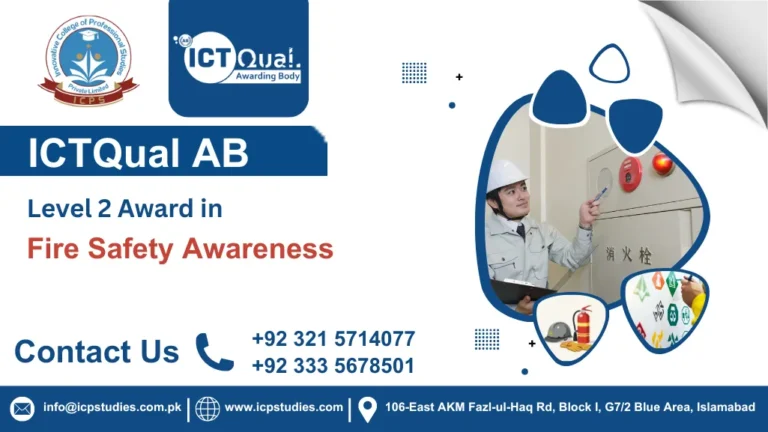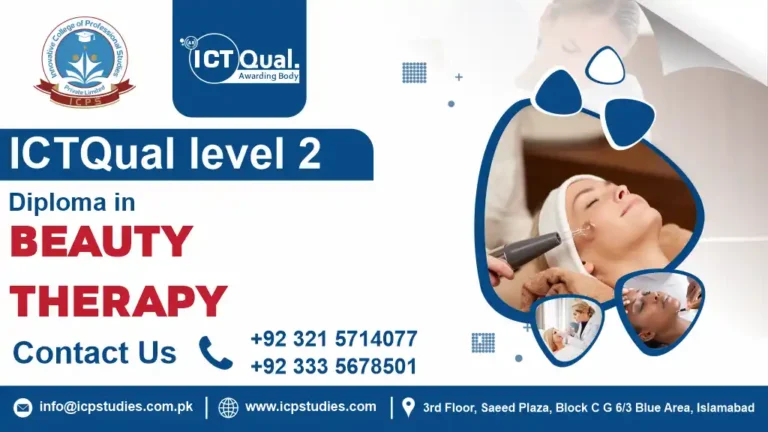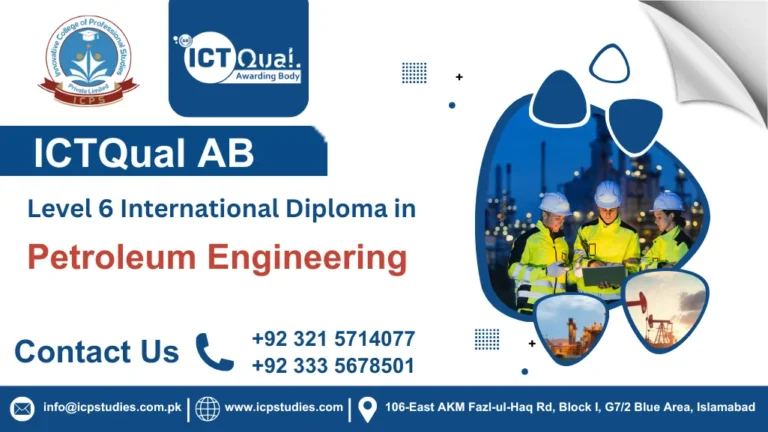Are you looking to advance your career in mechanical engineering or step into this exciting field? The ICTQual Level 3 Diploma in Mechanical Engineering is the perfect qualification to equip you with the essential skills and knowledge needed for success. This six-month course is ideal for anyone interested in building a strong foundation in mechanical engineering, from fundamental principles to industry-specific techniques.
With a focus on practical skills and in-depth theory, this 60-credit program provides students with a robust education in mechanical design, thermodynamics, manufacturing processes, and more. Whether you’re aiming for an entry-level role or seeking professional development, this course will help you achieve your career goals.
The ICTQual Level 3 Diploma in Mechanical Engineering offers a detailed curriculum designed to give students both theoretical understanding and hands-on experience in mechanical engineering. This course is tailored for individuals who want to pursue careers in the mechanical design, manufacturing, and engineering sectors.
Throughout the six months, students will explore various aspects of mechanical engineering, from the properties of materials and thermodynamics to the intricacies of mechanical design and computer-aided design (CAD). This course ensures that graduates have the tools to handle both the technical and practical challenges of mechanical engineering roles.
The ICTQual Level 3 Diploma in Mechanical Engineering (60 Credits) offers a comprehensive education that is essential for anyone looking to enter or advance in the mechanical engineering industry. With a focus on industry-relevant skills, cutting-edge technology like CAD, and practical experience, this diploma is an excellent investment for your career.
Whether you aim to work in design, manufacturing, or research and development, this diploma will provide the foundational knowledge and hands-on expertise needed to succeed in the field.
All About ICTQual Level 3 Diploma in Mechanical engineering 60 Credits – Six Months
Course Overview
The ICTQual Level 3 Diploma in Mechanical Engineering is a comprehensive qualification designed to provide students with the essential skills and knowledge required for a successful career in the mechanical engineering field. This six-month, 60-credit program offers both theoretical understanding and practical skills, ensuring that learners are well-equipped to meet the demands of the industry.
Mechanical engineering is at the heart of technological advancement and industrial innovation. From designing machines and tools to improving production processes and energy systems, mechanical engineers play a vital role in shaping the modern world. This diploma will give you the foundation in key areas such as mechanical principles, materials science, thermodynamics, fluid mechanics, CAD design, and manufacturing processes.
Throughout the course, you will gain a thorough understanding of the mechanical engineering landscape, with a focus on real-world applications. By the end of the program, you will be equipped with the knowledge and technical skills needed to enter the workforce or advance in your current role.
Whether you’re aiming to pursue a career in product design, machinery, or systems engineering, this diploma will provide you with the tools to succeed and open up exciting career opportunities in the rapidly evolving field of mechanical engineering.
Study Units
- introduction to ISO Standards and Auditing
- Advanced Auditing Techniques
- Training Methodologies and Adult Learning Principles
- Developing Effective Training Materials
- Communication and Facilitation Skills
- Managing and Evaluating Training Programs
- Ethics and Professionalism in Auditing and Training
- Emerging Trends and Future Developments
To enroll in the OSHAA ISO 9001:2015 QMS Lead Auditor Course, participants should meet the following entry requirements:
- Basic Understanding of Quality Management: A foundational knowledge of quality management principles and concepts is recommended.
- Work Experience in Quality Management: Ideally, participants should have practical experience working with or managing quality systems in an organization.
- Familiarity with ISO Standards: While not mandatory, a basic understanding of ISO 9001 or other ISO management standards is beneficial.
- No Prior Auditing Experience Required: This course is suitable for both beginners and those with some auditing experience. Prior experience in conducting audits is not a prerequisite.
- Commitment to Full Participation: A commitment to complete the 40-hour training program, including assessments, exercises, and participation in practical sessions, is required.
- Proficiency in English: Since course materials and instructions are provided in English, participants should have a working knowledge of the English language.
These entry requirements ensure that participants have the necessary background to benefit from the course and be successful in acquiring the skills to become effective ISO 9001:2015 Lead Auditors.
The OSHAA ISO 9001:2015 QMS Lead Auditor Course is ideal for a wide range of professionals looking to enhance their knowledge and skills in quality management and auditing. This course is specifically designed for:
- Quality Management Professionals: Individuals working in quality assurance or quality control roles seeking to expand their expertise and gain certification as ISO 9001 Lead Auditors.
- Aspiring Lead Auditors: Professionals who wish to pursue a career in auditing or advance their existing auditing skills and become recognized as qualified lead auditors in ISO 9001.
- Internal Auditors: Internal auditors looking to enhance their auditing techniques and broaden their knowledge to perform more effective and comprehensive audits of quality management systems.
- Compliance Managers: Managers responsible for maintaining compliance with ISO 9001:2015 and ensuring that the organization’s quality management system meets required standards.
- Consultants: Quality management consultants who need to enhance their auditing skills to support client organizations in achieving and maintaining ISO 9001 certification.
- Business and Operations Managers: Professionals who manage or oversee business operations and seek to implement or improve ISO 9001 systems within their organization.
- Industry Professionals Interested in Quality Systems: Anyone looking to understand ISO 9001, improve their organization’s QMS, and ensure high levels of quality across operations.
This course will provide you with the skills to conduct audits effectively, manage audit teams, and contribute to the continuous improvement of quality management systems.
Learning Outcome
Unit 1: Introduction to ISO Standards and Auditing
Learning Outcomes:
- Understand ISO Standards: Gain an in-depth understanding of various ISO standards (such as ISO 9001, ISO 14001, etc.), their applications, and their importance in organizational compliance and quality management.
- Audit Principles: Learn the core principles and objectives behind ISO auditing, and understand how they contribute to the evaluation and improvement of management systems.
- Familiarity with Key Terms: Develop a strong grasp of the terminology commonly used in ISO standards and auditing practices.
Unit 2: Advanced Auditing Techniques
Learning Outcomes:
- Audit Planning and Preparation: Learn how to create detailed audit plans, define audit scopes, objectives, and criteria, and develop effective audit checklists tailored to specific ISO standards.
- Effective Audit Execution: Master advanced audit techniques, including interviewing, observation, evidence gathering, and analysis, to conduct comprehensive and effective audits.
- Managing Audit Evidence: Understand how to accurately collect, document, and assess audit evidence to support audit findings and conclusions.
- Handling Non-Conformities: Learn how to identify, document, and manage non-conformities, and recommend appropriate corrective actions to ensure continuous improvement.
Unit 3: Training Methodologies and Adult Learning Principles
Learning Outcomes:
- Adult Learning Theories: Explore adult learning principles and theories to tailor training content and delivery methods to adult learners.
- Designing Effective Training Programs: Learn how to create structured training programs with clear learning objectives, engaging content, and practical application.
- Instructional Techniques: Discover a range of teaching methods and strategies that accommodate different learning styles to enhance engagement and knowledge retention.
- Assessing Learning Outcomes: Evaluate the effectiveness of training sessions using appropriate assessment tools, ensuring that training objectives are met.
Unit 4: Developing Effective Training Materials
Learning Outcomes:
- Creating Comprehensive Training Content: Learn how to develop training materials such as manuals, slides, and handouts that align with training objectives and support learner understanding.
- Incorporating Visual Aids: Use multimedia tools such as visuals, charts, and videos to enhance the training experience and reinforce key learning points.
- Designing Practical Exercises: Develop interactive exercises, role-playing scenarios, and simulations to apply theoretical concepts in real-world contexts.
Unit 5: Communication and Facilitation Skills
Learning Outcomes:
- Effective Communication: Learn how to communicate complex concepts clearly and concisely, and use active listening techniques to improve trainer-trainee interactions.
- Facilitation Skills: Master techniques for managing group dynamics, fostering discussions, and promoting active participation in training sessions.
- Motivating Trainees: Develop strategies to maintain learner engagement and motivation throughout the training process, ensuring maximum impact.
Unit 6: Managing and Evaluating Training Programs
Learning Outcomes:
- Organizing Training Sessions: Learn the practical aspects of organizing and managing training sessions, including logistics, scheduling, and resource management.
- Evaluating Training Effectiveness: Master techniques for evaluating training programs, using feedback and performance metrics to assess the success of training initiatives.
- Improving Training Programs: Analyze feedback from trainees and make data-driven improvements to training content, delivery methods, and overall effectiveness.
Unit 7: Ethics and Professionalism in Auditing and Training
Learning Outcomes:
- Applying Ethical Standards: Understand the ethical principles underlying ISO auditing and training, and learn to apply them consistently throughout the audit and training processes.
- Exhibiting Professionalism: Maintain a high standard of professionalism in all interactions, ensuring respect, integrity, and ethical conduct in both auditing and training environments.
- Compliance with Standards: Learn how to ensure that both auditing and training activities comply with relevant industry standards, regulations, and best practices.
Unit 8: Emerging Trends and Future Developments
Learning Outcomes:
- Recognizing Emerging Trends: Stay informed about new trends in ISO standards, auditing methodologies, and quality management systems.
- Adapting to Technological Advances: Understand how emerging technologies can be integrated into auditing and training practices, and adopt new tools to enhance effectiveness.
- Preparing for Future Challenges: Develop the skills needed to anticipate challenges in ISO auditing and training, and prepare to address them proactively as the field continues to evolve.
These learning outcomes will ensure that participants of the ISO 9001:2015 Lead Auditor Train the Trainer course gain the necessary skills and expertise to effectively lead and train auditors, enhancing organizational compliance and fostering a culture of continuous improvement.
FAQs about ICTQual Level 3 Diploma in Mechanical engineering 60 Credits – Six Months






